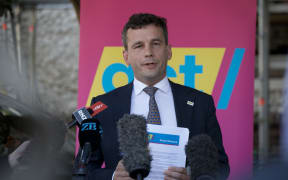
Official figures showed the number of children enrolled in early education dropped last year and they were attending for fewer hours. Photo: 123RF
Early childhood services say they are running on a knife edge after enrolments dropped and record numbers went out of business.
Official figures showed the number of children enrolled in early education dropped last year and they were attending for fewer hours.
They also showed 159 early childhood services closed in the 12 months to the end of June 2022 - about three times the usual figure and the most in 22 years of records.
People working in the sector told RNZ things were still tough this year.
Aro Valley Preschool senior teacher Bridget Mickelson-Warmouth said some Wellington services had gone out of business and it had become harder to enrol children.
"It is definitely a problem. I've heard of a number of leaders that are saying they're struggling to fill their rolls. The reason why I'm not 100 percent sure but it definitely is a problem around our area," she said.
Mickelson-Warmouth said centres needed a better funding system, including enough money to pay their teachers the same as kindergarten and school teachers.
But she said there was also an over-supply of early childhood centres.
"I think there are definitely too many early childhood centres. Too many with really big rolls that are cheaper for families but not necessarily better quality for tamariki," she said.
Education Ministry figures showed occupancy rates for education and care services were down to just 77 percent in the middle of last year, the lowest figure in 22 years.
In Auckland, the average occupancy rate was 73 percent and centre owner Vince Grgicevich said his centres were feeling it.
"Our occupancy is down probably 15 to 20 percent from what it was pre-Covid. We certainly were blaming Covid for a slow uptake of people coming back but I don't think you can use that as a reason now," he said.
He said some families could no longer afford early childhood education and he suspected that was a major driver of the lower occupancy rates.
"The only thing I can put it down to is cost of living. Our centres are in the vicinity of $200, $220 for an over-three [year-old], $300-odd for a baby. That's actually quite reasonable, there's a lot of centres that are more, we cannot be any cheaper, we'd love to be, and that's a fairly decent cost to parents," he said.
Grgicevich said Mondays and Fridays tended to have the fewest children attending his centres and that appeared to be because their parents were working from home or were with grandparents or friends.
He said keeping a centre going was "knife edge stuff".
"The viability of them is very questionable," Grgicevich said.
He said there were still a lot of centres and it was good that the Education Ministry had started to control the opening of new sites.
In the 12 months to the end of June 2022 only 67 new services opened.
'We're in a crisis'
Te Rito Maioha chief executive Kathy Wolfe said occupancy rates had improved from last year's record low but varied greatly around the country.
She said some people could not afford early childhood education, but the lack of teachers also contributed to low occupancy rates with some services unable to find enough staff to take on more children.
Wolfe said about 100 further centres had closed this year and inadequate government funding was making it hard for the sector to get by.
"We have a broken funding system, an over-zealous regulation system and teacher shortages, and so all of those converging together does put pressure on the services and hence we have had over the past 18 months more closures than anybody anticipated," she said.
"Most of these services that have been closing have been struggling for some time but the issue that we've seen now is the services that weren't struggling are now struggling ... that were doing well and this has got nothing with the quality of that service. It's got everything to do with how we're funded."
Wolfe said the sector was keen to talk to the new government about how to improve the situation.
"The sector is under stress and more importantly we're in a crisis but we're looking forward to working with the government to flip that," she said.





